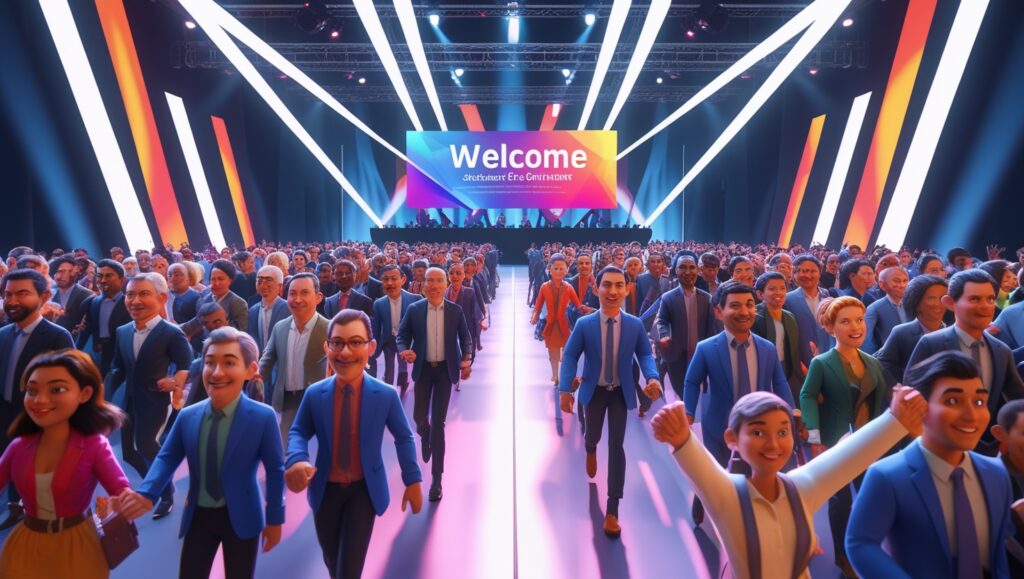Did you know that Europe accounts for nearly one-quarter of the world’s global trade and remains at the center of cultural, political, and academic discussions worldwide? The European Studies Conference provides a powerful stage for researchers, policymakers, event organizers, and business leaders to analyze Europe’s past, present, and future.
By attending, participants gain exclusive access to groundbreaking research, engage in critical debates, and develop networks that extend far beyond the conference hall. Whether your focus is European history, international relations, cultural identity, or sustainability, the European Studies Conference is a must-attend event for anyone committed to understanding Europe’s role in global affairs.
Why the European Studies Conference is Essential
The European Studies Conference is more than an academic gathering—it is a collaborative platform bridging the gap between theory and practice.
Key Benefits of Attending
- Global Networking: Meet leading academics, policymakers, and business leaders.
- Cutting-Edge Research: Access the latest studies in European history, economics, and politics.
- Policy Influence: Sessions often shape the agendas of governments and NGOs.
- Cross-Cultural Dialogue: Gain insights into the intersection of Europe with Asia, Africa, and the Americas.
This isn’t just about academic prestige—it’s about driving real-world change through research and dialogue.
Major Themes in European Studies
Each European Studies Conference covers a wide range of critical themes, reflecting Europe’s diversity and global influence.
1. European History & Heritage
- Preservation of cultural landmarks and traditions
- The role of Europe in shaping modern civilization
- Colonial legacies and their impact today
2. European Politics & International Relations
- European Union policies and governance
- Brexit and its long-term implications
- Europe’s role in global security and diplomacy
3. Economic Development & Trade
- Eurozone financial policies
- Trade relations with Asia and North America
- Innovation in European industries and startups
4. Migration & Identity
- Refugee crises and integration policies
- Multiculturalism in Europe’s urban centers
- Diaspora studies and global connections
5. Sustainability & Climate Policy
- Europe’s Green Deal and environmental leadership
- Renewable energy adoption across the continent
- Urban sustainability and smart cities
These focus areas ensure the conference remains interdisciplinary, relevant, and globally impactful.
Who Attends the European Studies Conference?
The diversity of attendees makes this conference particularly valuable.
- Academics & Researchers: Present and publish research findings.
- Policy Makers: Gain academic insights to support legislative agendas.
- Business Leaders: Explore investment and trade opportunities in Europe.
- Event Organizers: Benchmark best practices for large-scale conferences.
- Media Professionals: Access high-value stories and expert interviews.
The conference acts as a meeting point for different disciplines, making it uniquely enriching for every participant.
How the European Studies Conference Impacts Global Understanding
Influencing Academic Progress
Research presented at these conferences often becomes the foundation for textbooks, university curricula, and policy papers.
Informing Policy Decisions
Policymakers use conference insights to design migration strategies, economic policies, and international agreements.
Strengthening Global Partnerships
Through collaborations, participants build bridges between Europe and the rest of the world.
Strategies to Maximize Your Experience
Attending such a high-level conference requires planning. Here are five ways to get the most out of it:
- Prepare Early – Review the conference schedule and select sessions that align with your research or business goals.
- Engage Actively – Ask questions, participate in discussions, and attend breakout sessions.
- Leverage Networking – Exchange contacts with peers, speakers, and industry professionals.
- Take Notes Strategically – Focus on key takeaways that can influence your work or research.
- Use Post-Conference Resources – Many conferences offer recorded sessions and digital archives.
These tips ensure you walk away with actionable insights, not just memories.
Frequently Asked Questions (FAQ)
Q1. What is the European Studies Conference?
The European Studies Conference is an international event where academics, policymakers, and professionals discuss Europe’s history, politics, culture, and global role.
Q2. Who should attend the conference?
It is ideal for researchers, policymakers, event organizers, entrepreneurs, and journalists interested in Europe’s global influence.
Q3. What topics are usually covered?
Typical themes include European history, EU policies, trade, sustainability, migration, and global diplomacy.
Q4. How can I register for the conference?
Registration details are usually available through academic institutions or platforms like Conferences Daily.
Q5. Why is the conference important for businesses?
It provides valuable insights into European markets, innovation trends, and international trade relations.
Conclusion
The European Studies Conference is a vital platform for academics, policymakers, and professionals seeking to understand Europe’s evolving role in global affairs. By attending, participants gain unparalleled opportunities for research, collaboration, and influence—helping to shape policies, drive innovation, and foster cultural understanding.
If you are ready to deepen your expertise, expand your network, and contribute to meaningful global conversations, this is the event for you.
👉 Secure your spot today by registering through Conferences Daily and be part of the conversation shaping Europe’s future.















